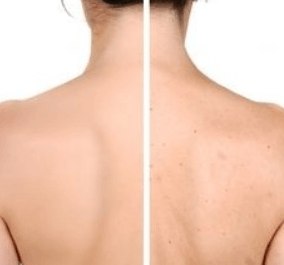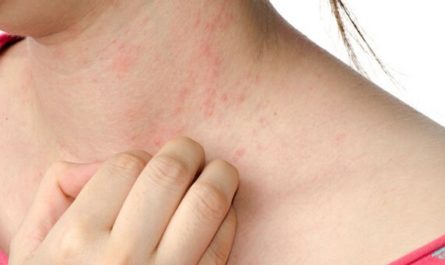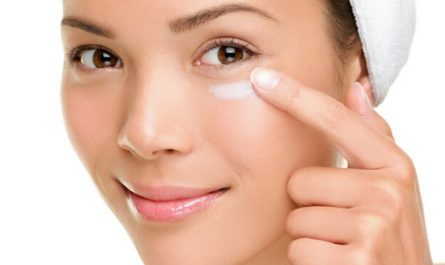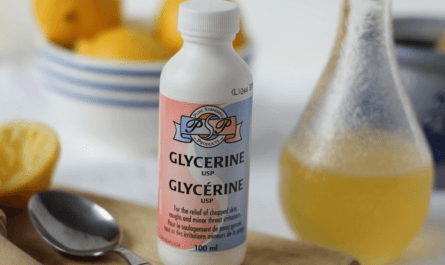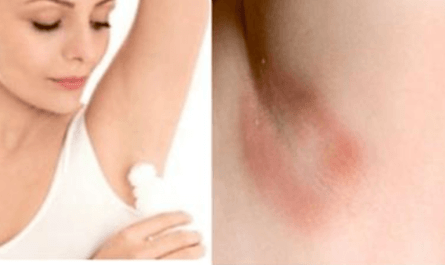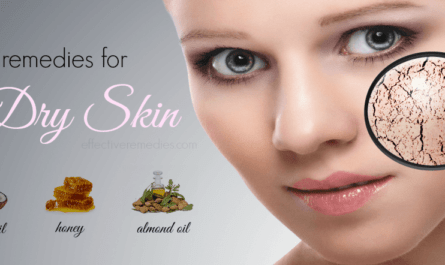Itching all over the body is also known as generalized pruritus. It is a distressing and uncomfortable symptom that affects people of all ages. This condition can be caused by a variety of factors, ranging from minor irritations to serious underlying medical conditions. Understanding the common causes of itching all over the body is essential to identify the root cause. In this article, we will explore 12 common causes of itching all over the body with treatment.

12 Common Causes of Itching All Over Body
1. Dry Skin (Xerosis)
Our skin’s outer layer acts as a protective barrier, locking in moisture. But when this barrier is compromised, moisture escapes, leaving skin parched, rough, and intensely itchy. Low humidity, excessive bathing, aging, and certain medical conditions can all contribute to dryness.
When your skin lacks moisture, the nerve endings in your dermis become irritated, triggering that irresistible urge to scratch. Scratching may provide temporary relief, but it can make the itch worse by further damaging your skin’s protective barrier.
To combat dry skin, it’s important to moisturize regularly, especially after bathing. Look for thick, fragrance-free creams or ointments that contain ingredients like ceramides, hyaluronic acid, or petrolatum. These ingredients help restore your skin’s natural moisture barrier and prevent further water loss.
It’s also a good idea to limit your time in the shower or bath and use lukewarm water instead of hot. Prolonged exposure to water and high temperatures can strip your skin of its natural oils. And don’t forget to use a humidifier, especially in dry climates or during the winter months.
2. Eczema (Atopic Dermatitis)
Eczema, that chronic skin warrior, is another prime suspect for an all-over itch fest. This inflammatory condition causes dry, inflamed, and maddeningly itchy skin that can crop up anywhere on the body.
People with eczema often have an overactive immune system that responds to triggers by producing inflammation. This inflammation causes the itchy, red, and sometimes blistery rash that is the hallmark of eczema.
Managing eczema often requires a multi-pronged approach. Moisturizing is key to keeping skin hydrated and preventing flare-ups. Look for thick, creamy moisturizers that are free of fragrances and other potential irritants. Applying moisturizer immediately after bathing can help lock in hydration.
It’s also important to identify and avoid triggers whenever possible. Common triggers include stress, sweat, certain fabrics, and environmental allergens like pollen or pet dander. In some cases, over-the-counter or prescription topical corticosteroids may be necessary to relieve itching.
3. Psoriasis
If you’ve ever dealt with psoriasis, you know the itch struggle is real. This autoimmune disorder causes an overzealous production of skin cells, resulting in thick, scaly patches that can occur anywhere from your scalp to your shins. Not only are these plaques unsightly, but they can also be incredibly itchy and painful.
Psoriasis occurs when the immune system mistakenly attacks healthy skin cells. This causes them to multiply at an accelerated rate. Instead of shedding normally, these excess cells pile up on the surface of the skin, forming those characteristic scaly patches.
While there’s no cure for psoriasis, there are many treatments available to help manage symptoms. Topical corticosteroids and vitamin D analogs can help reduce inflammation and slow cell growth.
Moisturizers and coal tar products can also help soothe itchy, irritated skin. For more severe cases, phototherapy or systemic medications like methotrexate or biologics may be necessary to control symptoms.

4. Allergic Reactions
Ah, allergies – the great imitator of itches. When your body mistakes a harmless substance as a threat, it releases histamines. This will cause widespread itching, hives, swelling, and even difficulty breathing. If you find yourself scratching from head to toe, an allergic reaction could be the culprit.
The severity of allergic reactions can vary from mild to life-threatening. Mild reactions may cause itching, redness, and hives, while more severe reactions can lead to difficulty breathing, swelling of the throat, or even anaphylaxis.
If you suspect an allergic reaction, it’s important to identify and avoid the trigger whenever possible. Over-the-counter antihistamines can help relieve mild allergy symptoms, but more severe reactions may require prescription medications.
5. Kidney Disease
Your kidneys play a crucial role in filtering waste from your blood. But when they start to falter, waste products can accumulate, causing a condition called uremic pruritus. These substances can irritate nerve endings in the skin, leading to itching all over the body. It is particularly common on the back, arms, and legs.
Treatment for uremic pruritus often involves a combination of approaches. Dialysis, which helps filter waste products from the blood, can provide some relief. Moisturizers and topical medications like corticosteroids or capsaicin cream may also help soothe itchy skin.
In some cases, medications like gabapentin or pregabalin may be prescribed to help relieve the itch. Light therapy, particularly narrowband UVB therapy, has also shown promise in reducing symptoms of uremic pruritus.
6. Liver Disease
Just like kidney troubles, liver disorders such as hepatitis C, cirrhosis, or bile duct obstruction can also trigger widespread itching. The itch often starts on the palms and soles before spreading to other parts of the body. Treating the underlying liver condition may help scratch that itch for good.
The exact cause of itching in liver disease is not fully understood, but it’s thought to be related to the buildup of bile acids and other substances in the blood. When the liver isn’t functioning properly, these substances can accumulate and irritate nerve endings in the skin.
Treatment for liver-related itching depends on the underlying cause. Medications like ursodeoxycholic acid or cholestyramine can help reduce the buildup of bile acids in the body. Antihistamines, like diphenhydramine or hydroxyzine, may also provide some relief.
7. Thyroid Disorders
Your thyroid, that little butterfly-shaped gland in your neck, plays a big role in regulating your body’s metabolism. But when it goes haywire, it can cause a whole host of issues, including dry skin and incessant, itching all over the body.
In hypothyroidism, the body doesn’t produce enough thyroid hormone, which can lead to dry, rough, and itchy skin. The decreased metabolism associated with hypothyroidism can also cause the skin to become pale and cold.
Hyperthyroidism, on the other hand, causes the body to produce too much thyroid hormone. This can speed up metabolism and cause the skin to become warm, sweaty, and itchy. In addition, the overproduction of thyroid hormone can also lead to hives or an itchy rash.
Treatment for thyroid-related itching involves correcting the underlying hormone imbalance. For hypothyroidism, this typically means taking a daily thyroid hormone replacement medication. For hyperthyroidism, treatment options may include antithyroid medications, radioactive iodine therapy, or surgery to remove the thyroid gland.
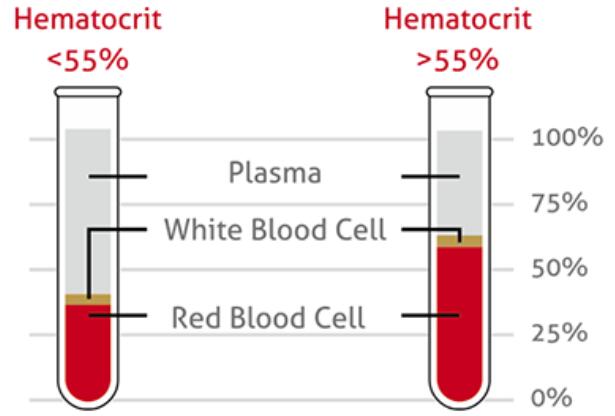
8. Hematologic Disorders
Certain blood disorders, like Hodgkin’s lymphoma, cutaneous T-cell lymphoma, and polycythemia vera, can also be itch instigators. The itch may be a direct result of the disease itself or a side effect of the treatment.
Treatment for hematologic-related itching depends on the underlying disorder. Chemotherapy, radiation, or targeted therapies may be used to treat the cancer or bone marrow disorder.
In some cases, the itching may be a side effect of the treatment itself. Certain chemotherapy drugs, like bleomycin or dacarbazine, can cause itching as a side effect. If this occurs, your doctor may be able to adjust your treatment plan.
9. Pregnancy
During pregnancy, the body undergoes a surge in hormones, particularly estrogen and progesterone. These hormonal changes can cause the skin to become dry, stretched, and itchy, especially over the growing belly. This type of itching, known as prurigo gestationis, is usually harmless and resolves after delivery.
However, some pregnant women develop a more serious condition called intrahepatic cholestasis of pregnancy (ICP). This condition typically develops in the third trimester. It is characterized by severe itching, particularly on the palms and soles of the feet. The itching is often worse at night and may be accompanied by dark urine and light-colored stools.
Treatment for ICP typically involves close monitoring of liver function and bile acid levels, along with medications. For more general pregnancy-related itching, maintaining skin moisture and avoiding hot showers can help provide relief.
10. Diabetes
Diabetes can contribute to itching in several ways. High blood sugar can lead to dry, dehydrated skin, which is more prone to itching and irritation. Diabetes can also cause nerve damage, which can lead to a type of itching called neuropathic itch.
In addition, people with diabetes are more susceptible to bacterial and fungal skin infections, which can cause localized itching. Conditions like diabetic dermopathy and eruptive xanthomatosis are also more common in people with diabetes.
Managing diabetes-related itching starts with getting blood sugar levels under control. This typically involves a combination of lifestyle changes and medications. Keeping skin clean, dry, and moisturized can also help prevent itching and skin infections.
11. Neuropathic Itch
Sometimes, the itch has nothing to do with your skin at all. Neuropathic itch occurs when there’s damage or dysfunction in your nervous system. This type of itch can be particularly stubborn and difficult to treat, often requiring specialized management.
Treating neuropathic itch can be challenging, as traditional anti-itch treatments like antihistamines often aren’t effective. Instead, treatment typically involves medications that target the nervous system.

12. Psychological Factors
Believe it or not, your mind can play tricks on your skin, too. In some cases, itching can be related to psychological factors like anxiety, stress, or obsessive-compulsive disorder. This “psychogenic itch” is very real, and it can be a challenging beast to tame, often requiring psychological or psychiatric intervention.
Treating psychogenic itch often requires a multidisciplinary approach, involving both dermatologists and mental health professionals. Cognitive-behavioral therapy (CBT) can be particularly effective in helping patients identify and change thought patterns and behaviors that contribute to itching.
Medications like SSRIs, SNRIs, or low-dose antipsychotics may also be prescribed to help manage underlying psychiatric conditions. In some cases, topical treatments like capsaicin or menthol may be used to provide localized relief.
Tips for Itching All Over Body
Here are some tips to help alleviate itching all over the body:
1. Keep the skin hydrated: Dry skin can worsen itching. Use a moisturizer regularly, especially after bathing, to keep the skin hydrated and reduce itching.
2. Use gentle, fragrance-free products: Avoid using harsh soaps, detergents, and skincare products that can irritate the skin. Opt for gentle, fragrance-free options instead.
3. Take lukewarm showers or baths: Hot water can strip the skin of its natural oils and exacerbate itching. Stick to lukewarm water when bathing and avoid prolonged exposure.
4. Wear loose-fitting clothing: Tight clothing can rub against the skin and irritate. Opt for loose-fitting, breathable clothing made from natural fabrics like cotton to minimize itching.
5. Avoid scratching: Although it can be difficult, try to resist the urge to scratch as it can further irritate the skin and lead to more itching. Instead, gently pat or tap the itchy area to alleviate the sensation.
6. Apply cold compresses: Applying a cold compress or ice pack to the itchy areas can provide temporary relief by numbing the nerves and reducing inflammation.
7. Use over-the-counter creams or ointments: Topical creams or ointments containing ingredients like hydrocortisone or calamine can help soothe itching. Follow the instructions and consult a healthcare professional if symptoms persist.
8. Take antihistamines: Over-the-counter antihistamines can help relieve itching caused by allergies or histamine release. Consult a healthcare professional to determine the appropriate dosage and medication for your condition.
9. Avoid triggers: If you notice that certain substances or factors trigger your itching, such as certain foods, allergens, or environmental factors, try to avoid them as much as possible.
10. Maintain a healthy lifestyle: A healthy lifestyle can contribute to overall skin health. Staying hydrated, eating a balanced diet, and exercising regularly can support healthy skin and reduce itching.
When to Seek Medical Attention?
While occasional itching is a normal part of life, persistent or severe itching can be a sign of an underlying health condition that requires medical attention. You should see a doctor for your itching if:
- The itch lasts more than two weeks or is severe enough to disrupt your daily life or sleep.
- The itch is accompanied by other symptoms like fever, weight loss, or skin changes like redness, swelling, or blistering.
- You have a history of liver, kidney, or thyroid disease, or you take medications that can cause itching as a side effect.
- Over-the-counter treatments like moisturizers and antihistamines don’t provide relief.
- You have signs of a skin infection, like painful red bumps, pus-filled blisters, or swollen lymph nodes.
Itching all over the body can be a maddening and sometimes debilitating symptom that significantly impacts quality of life. If you’re dealing with persistent or severe itching, see your doctor for a thorough evaluation. With the right combination of medical interventions, lifestyle changes, and home remedies, it is possible to get relief.

